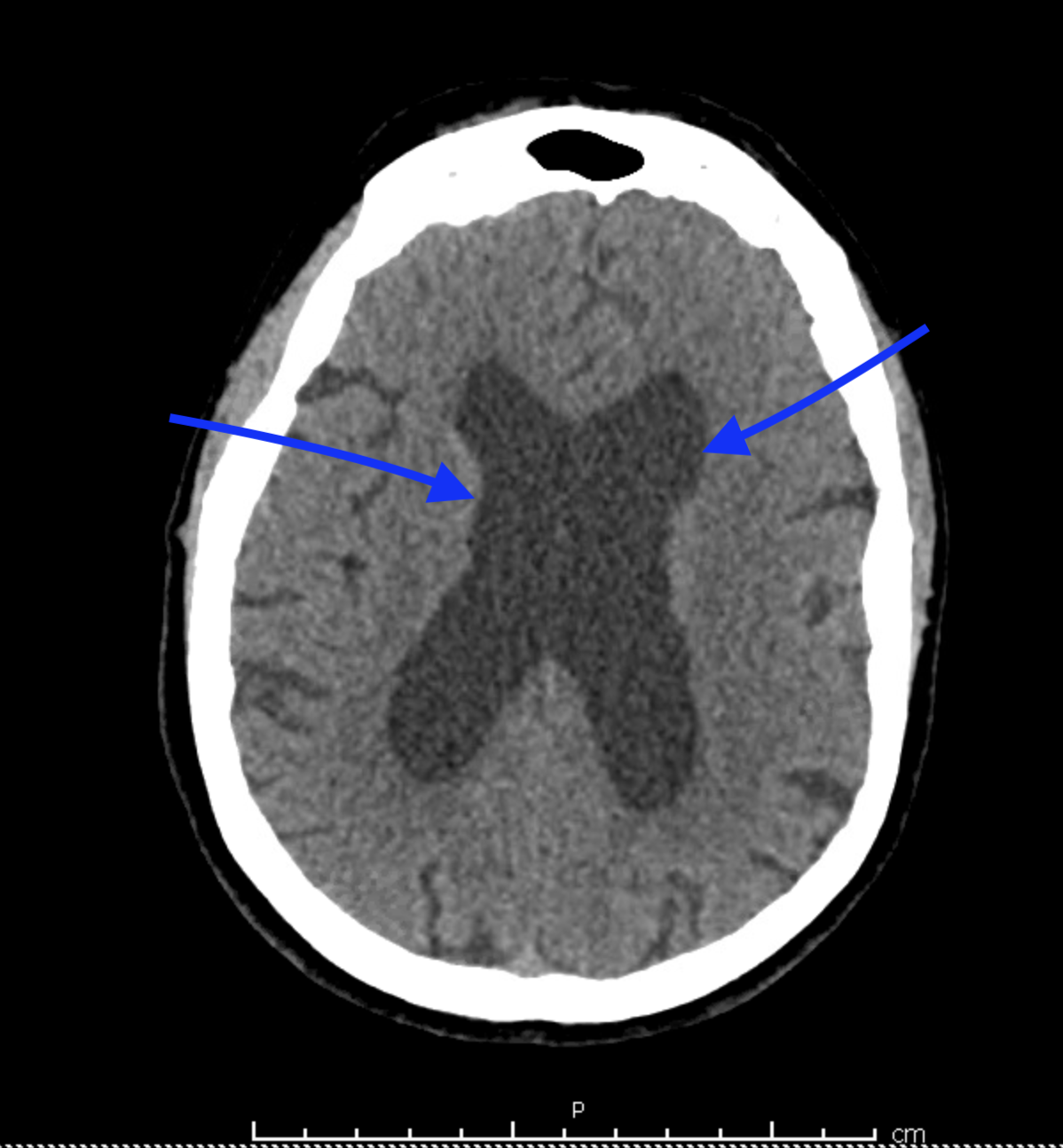Hydrocephalus
- Home
- Hydrocephalus

CT scan showing enlarged fluid spaces around the brain
Hydrocephalus
Hydrocephalus (“water on the brain”) is a condition caused by too much spinal fluid (cerebrospinal fluid, or CSF) in or around the brain.
CT scan showing enlarged fluid spaces around the brain
The brain and spinal cord are normally bathed in CSF. The body is constantly producing and reabsorbing CSF. The normal circulation of CSF is important for providing nutrients, removing waste, and acting as a “cushion” for the brain and spinal cord.
Hydrocephalus can be caused by a blockage in the normal drainage pathway of CSF, or an inability to reabsorb the CSF. Rarely, it can be caused by an over-production of CSF. In some cases, hydrocephalus can be a surgical emergency; but in others, such as normal pressure hydrocephalus, it can be a chronic condition that manifests over years.
Hydrocephalus may be treated by a temporary drain, or by a permanent implanted drain, called a shunt. There are different kinds of shunts, but the most common type is a ventriculoperitoneal shunt.
If you have been diagnosed with hydrocephalus, feel free to contact my office for a consultation or imaging review.
